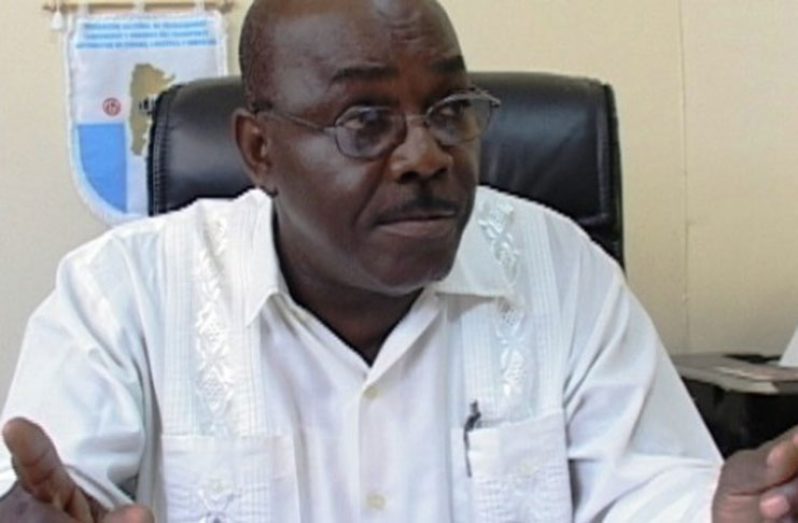The Chambers of the Director of Public Prosecution (DPP) has filed an appeal against the court’s decision to acquit fraud accused Carvil Duncan on a charge of simple larceny where he allegedly stole close to $1M from the Guyana Power and Light.
The DPP had assigned police prosecutors to the case, but this was criticized owing to the sloppiness of the work presented in court, which caused the magistrate to set the former GPL director free. However, Public Relations Officer of the DPP, Chambers Liz Rahaman confirmed to this newspaper that the appeal was filed on Monday. It is unclear whether the DPP Chambers will now fully take charge of the case.
Only last Thursday Attorney General and Minister of Legal Affairs, Basil Williams told the Guyana Chronicle in an interview that “if the case is appealable it should be appealed. The appeal has to be done by the prosecution and I would suggest that it should be appealed. I think we should emphasise that the case should be appealed if it is appealable…I would say if it is appealable it should be appealed,” Williams asserted.
The case against Duncan alleged that on March 31, 2015 he stole $984,900 in Director’s fee which was the property of the Guyana Power and Light Incorporated (GPL). Williams made it clear that it was not the government’s call to initiate that appeal process but rather the prosecution. The DPP had assigned police prosecutors to the case, but stated that the matter was always handled by the Chambers.
The DPP chambers said police prosecutors who are assigned to the Chambers prosecute all matters in the Magistrates’ Courts. “This is the present system, and they handle all matters in Magistrates’ Courts.” The agency, headed by Mrs. Shalimar-Ali-Hack, has come under intense scrutiny for its handling of the case, as well as its decision to assign prosecutors to the Jennifer Westford and Margaret Cummings’ fraud matters more than one year after the case had started.
Magistrate Leron Daly had ruled on November 2 that a prima facie case had not been established against Duncan and that she could not call on him to lead a defence. Magistrate Daly in her ruling had stated that the prosecution had to prove whether Duncan had received consent to take the money, if the money was an absolute or special property of GPL, if he took and carried away an article, whether he took an article capable of being stolen, and whether he had a claim of right to the funds.
The prosecution however, failed to prove that no consent had been given to the defendant to take the funds, Daly told the court. She also ruled that former Prime Minister Sam Hinds evidence was hearsay. Hinds’ evidence is that while Cabinet approved pay increases for GPL board members, there was no decision on retroactive payment. The prosecution also tendered the cabinet memorandum, which according to the magistrate was a photocopied document, adding that the prosecution had made no attempt to prove that an original existed, and that the copy was a true representation of the original.
The prosecution had also tendered a bank statement which indicated that the sum of $984,900 had been debited from GPL’s account. However, the prosecution led no circumstantial evidence in relation to the bank statement, forcing the court to only admit the document for the fact that it existed, and not for the truth of it. As a result the magistrate said the prosecution had failed to lead sufficient evidence to support all the evidence that had been brought before the court.
Jury still out
Meanwhile, President David Granger, weighing in on the speaking on the said the ruling by the magistrate on November 2, was due to insufficient evidence; however, insufficient evidence is not equal to innocence. Speaking on the latest ‘Public Interest’ programme, President Granger said, “there is a slight difference between insufficient evidence and innocence therefore, insufficient evidence (is) not equal to innocence, but I will await the findings of the Commission of the Tribunal that I had set up, and be guided by that tribunal.”
The President noted that he will not interfere in any work of the autonomous agencies except and unless he has the capacity to do so under the constitution. “Literally the jury is still out, and I will be advised by the findings of that tribunal, but as you know, the matters on which Duncan was accused have not finished. Just one part is and other parts are still in the court, so as far as I am concerned, as far as I have been advised, he will still remain suspended,” President Granger explained.
The President pointed out that the recently appointed presidential tribunal on the Duncan case was set up because he was advised that the person against whom the accusations were made should not be sitting on four commissions; judicial, police, public service and the Guyana Defence Force. “I have not received report of the tribunal … when I receive that report which I will, you will hear from me,” President Granger concluded.



.jpg)








